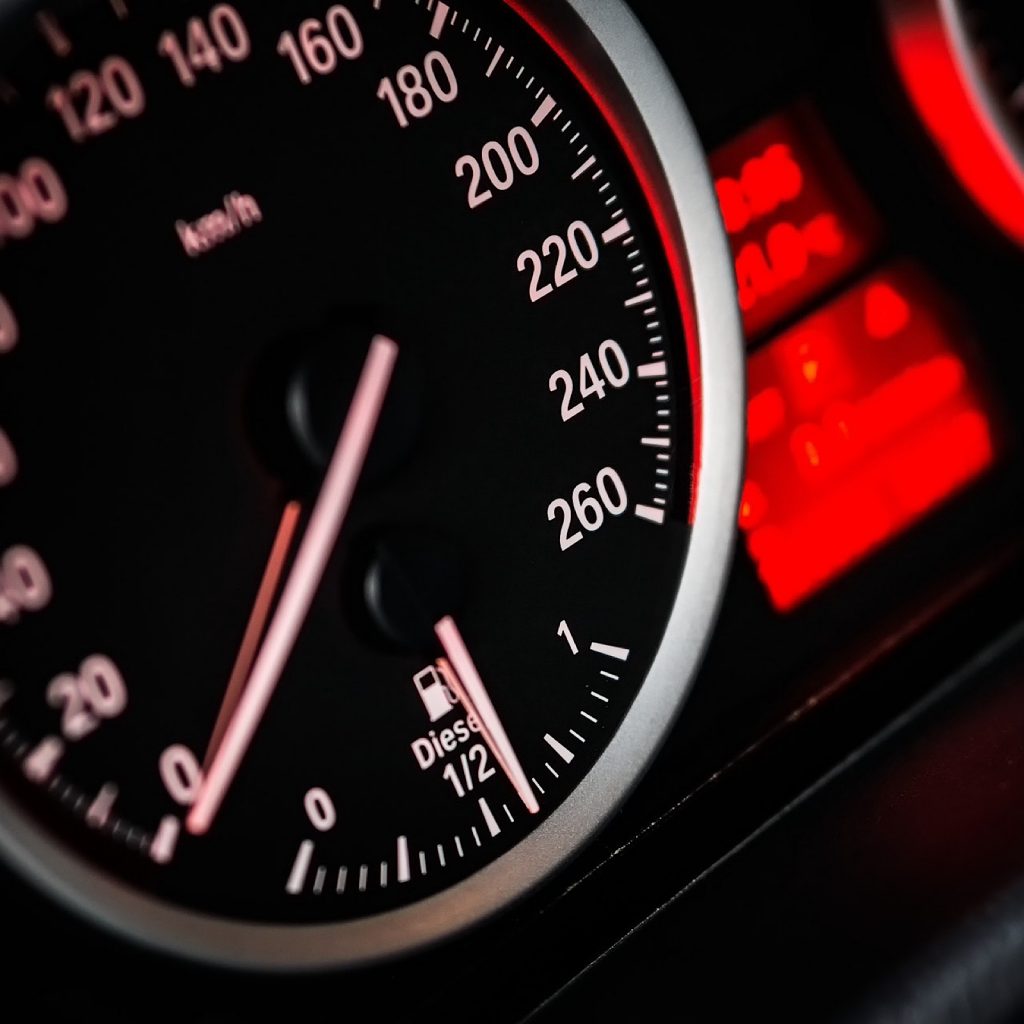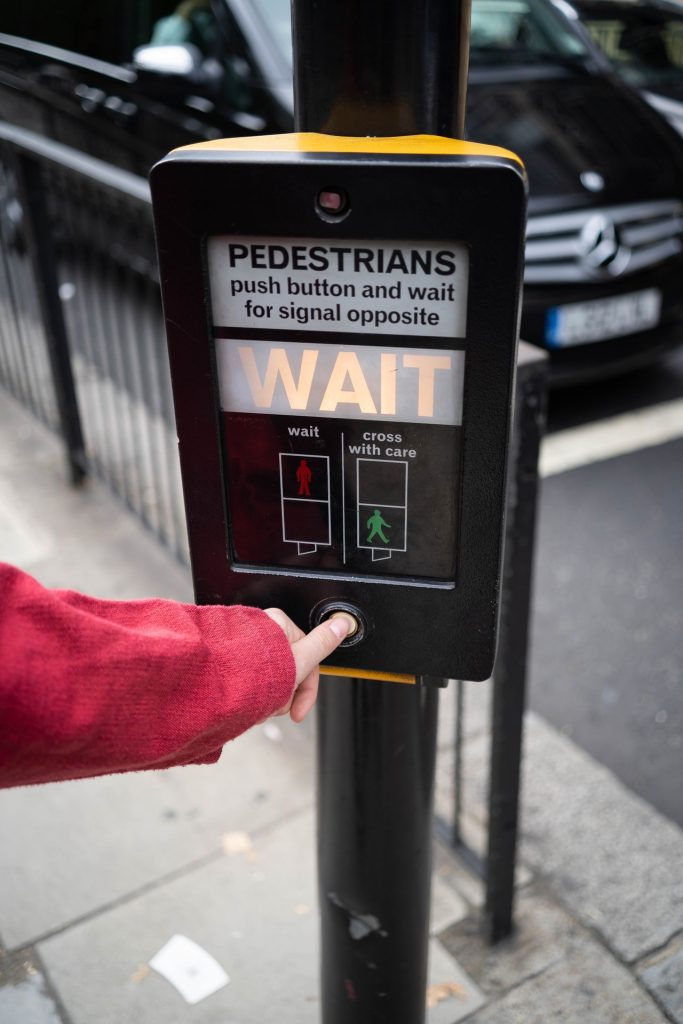What Is the Cost of a Florida Speeding Ticket?

If you’re regularly pushing the needle on your speedometer past the legal limit, you’re risking a lot more than simply your fellow drivers’ displeasure. According to the Florida Department of Motor Vehicles, almost 5 million traffic penalties are issued each year, the bulk of which are issued to speeding drivers.
If you’re caught speeding down the road, you could face steep fines depending on your county. Individual counties manage traffic tickets in Florida, and speeding fines vary slightly based on where you get a speeding ticket in the state.
Penalties for going over the speed limit:
1-5 m.p.h. – Warning
6-9 m.p.h. – $118.00-$151.00
10-14 m.p.h. – $193.00-$226.00
15-19 m.p.h. – $243.00-$276.00
20-29 m.p.h. – $268.00-$301.00
30+ m.p.h. – $343.00-$376.00
In most cases, the driver is issued a warning for minor infractions of five miles or less over the speed limit. They may, however, still earn license points. Fines escalate in direct proportion to the driver’s speed exceeding the legal limit. In addition to the regular penalties, violations occurring in a school zone or a construction zone are subject to increased penalties. When a violation causes a person to be injured or property to be destroyed, there are further consequences.
Understanding your options and possible results after receiving a traffic citation will help you respond in the most effective way imaginable. A Miami traffic ticket lawyer who specializes in traffic law may be able to help you.
Questions about other traffic violations? Contact a red light camera violation attorney.
Consequences of Avoiding Florida Traffic Tickets

Some Floridians may not consider the implications of failing to pay a traffic ticket or failing to appear in traffic court, but both actions can have major consequences. Before brushing away and forgetting about your traffic ticket, drivers should think about the consequences.
Not Paying Traffic Tickets
Driving privileges will be suspended if fines related to traffic violations are not paid. The driver’s driving rights will be restored only if the fine is paid at their local traffic court. Some jurisdictions allow motorists to meet their payment obligations by using online payment portals. Once payment is received, the court will automatically upload citation clearance information into the state’s system. To restore full driving privileges, you may need to pay a reinstatement fee at your nearest driver’s license service location.
Failure to Appear in Court
Failure to appear for a traffic summons will result in an indefinite suspension of your driver’s license. Contacting the court that issued the traffic ticket is the initial step toward recovering driving privileges. After that, the driver must meet all of the court’s conditions. To complete the process, the driver may be required to pay a reinstatement charge.
Missing Driving School
As part of their “punishment” for a traffic infringement, drivers are occasionally required to attend a court-ordered driving school. Failure to meet this criteria will result in the suspension of a driver’s license. Driving privileges are only available for reinstatement once the driver contacts the court and meets all of the court’s criteria.
The consequences of failing to pay a traffic ticket or comply with the requirements of a traffic summons may be more severe than anticipated. If you have questions about unpaid traffic tickets, contact a Miami traffic ticket lawyer.
If you wish to contest a traffic violation, such as a speeding ticket, or if you believe you received an unfair red light camera ticket, contact a red light camera violation attorney at Hochman & Goldin, P.A.
What Can a Miami Traffic Ticket Lawyer Do for You?

Are you facing a traffic ticket with a fine or a more serious offense? If this is the case, you may want to consider hiring a Miami traffic ticket lawyer to help you with the process. Every circumstance is different. As a result, an attorney’s ability to help you will differ based on the circumstances. Nonetheless, here are some of the ways a traffic lawyer might assist you:
An Attorney Can Represent You in Court
If you want to contest a traffic ticket, you should expect to appear in court at least twice. You will almost never have to go to court if you hire an attorney. To put it another way, your lawyer can represent you in court even if you are not present.
Expert Legal Advice
The lack of experience and legal understanding is one of the issues with representing yourself. The average person has no idea what the appropriate course of action is in any particular situation. Experienced traffic lawyers have the finest grasp of what methods and solutions are available for achieving positive outcomes. And it’s not all about the law. Attorneys who spend a lot of time in traffic court are familiar with the different judges’ tendencies, as well as the tendencies of the police who write the citations. This local knowledge can help you decide how to respond to a traffic ticket.
Negotiations
Negotiations and plea bargaining can occur in traffic matters, albeit they are more typical in major criminal cases. For example, reducing a moving violation ticket down to a non-moving violation might occasionally save you points on your driving record.
Questions about other traffic violations? Contact a red light camera violation attorney.
How Does a Red Light Camera Work in Florida?

Red light cameras utilize the sensors in traffic signals to record photo and video footage of vehicles entering an intersection after the light has turned red. If you run a red light at a red light camera intersection, the system will image your car and record your license plate number, as well as the incident’s date and time, vehicle speed, location and time elapsed since the signal went red.
Almost all red light cameras are owned by third-party firms, which submit the camera’s film and data to the appropriate law enforcement department. The registered owner of the car receives the red light camera tickets. The violation’s date, time and location are included in the notice, as well as copies of the images.
Red light cameras reduced fatal crashes at intersections in large cities by 14%, according to a 2019 study by the Insurance Institute for Highway Safety (IIHS). Because of this high success rate, many states now allow cities to use red light cameras to enforce traffic laws. Despite the fact that red light cameras have been proved to minimize fatal car accidents, errors do occur. It’s critical to understand how to appeal a red light camera ticket if you believe it was issued in error.
You should not dispute your traffic ticket on your own. The procedure for contesting a traffic ticket is lengthy. A red light camera violation attorney will be familiar with the rules and procedures that will be necessary to defend your case in court, and will be able to offer many legal arguments to counter the photo evidence used against you. Furthermore, a Miami traffic ticket lawyer can fight on your behalf in court without you having to be present, saving you two trips to the courts and avoiding time away from work or school.
More questions about traffic violations? Contact Hochman & Goldin, P.A. today.
Florida DUI Checkpoints: What You Should Know

A sobriety checkpoint, often known as a DUI checkpoint, is an area where law enforcement officials station themselves to inspect drivers for symptoms of alcohol and impairment. It’s critical to understand your rights if you’re stopped at a DUI checkpoint.
When performing these checkpoints, police must follow various rules and regulations. You must stop and pull over if the police have requested it, otherwise you risk being arrested. If you want to avoid being arrested, arguing with a police officer over whether or not they can perform a DUI checkpoint is never a good idea. Drivers can, however, legally avoid stopping at a checkpoint by making a U-turn if they do not infringe any traffic laws in the process.
If you decide not to evade a checkpoint, have a calm and cooperative demeanor. You will be asked to roll down the window by the officer. Drivers must then present identification, such as a driver’s license, vehicle registration or proof of insurance. Once you have identified yourself and presented the proper papers, you are not required to provide any other information.
Avoid giving your consent to a car search. To do so, officers will need your permission, a warrant or probable cause. If they don’t have any of the aforementioned, you have every right to deny their request.
This update is brought to you by Hochman & Goldin, P.A. A Miami traffic attorney can assist you with criminal traffic violations, and our team is ready to answer your questions. Please call 305-515-5284 to speak with a red light camera violation attorney.
Pedestrian Fatalities Rising at an Alarming Rate in Florida

According to a new report by the Governors Highway Safety Association, pedestrian deaths in the sunshine state have increased significantly over the last three years.
In 2021, 444 people died while walking in Florida, an almost 31% rise over the previous year, according to the data. This is also a greater increase than the national average. From January 1 to June 30, pedestrian fatalities in the United States jumped approximately 17%, from 2,951 in the first six months of 2019 to an estimated 3,441 in the same period last year. This represents a 507-death increase. Over the last decade, pedestrian deaths have increased 46%, from 4,457 in 2011 to 6,516 in 2020.
For more than a decade, highways that prioritize speed over pedestrian safety have contributed to a rise in pedestrian fatalities. Inadequate pathways and insufficient lighting have also played a role. Additionally, within the time period covered by the report, there were significant behavioral abnormalities at play. An increase in unsafe driving that began when Americans saw wide open highways at the beginning of the pandemic has continued as traffic volume returns to more typical levels.
The Governors Highway Safety Association is a non-profit organization that represents state safety offices that use federal grant funds to solve highway hazards caused by driver conduct behind the wheel.
If you have a traffic ticket you would like to fight, such as a speeding ticket, contact a Miami traffic attorney. If you have reason to believe you unfairly received a red light ticket, contact a red light camera violation attorney.
